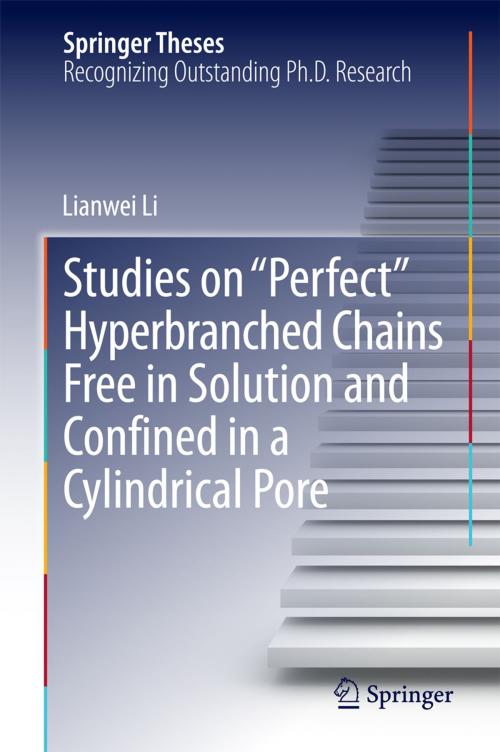Studies on "Perfect" Hyperbranched Chains Free in Solution and Confined in a Cylindrical Pore
Nonfiction, Science & Nature, Technology, Textiles & Polymers, Science, Chemistry, Organic| Author: | Lianwei Li | ISBN: | 9783319060972 |
| Publisher: | Springer International Publishing | Publication: | April 8, 2014 |
| Imprint: | Springer | Language: | English |
| Author: | Lianwei Li |
| ISBN: | 9783319060972 |
| Publisher: | Springer International Publishing |
| Publication: | April 8, 2014 |
| Imprint: | Springer |
| Language: | English |
Lianwei Li's Ph.D. thesis solves a long-standing problem in polymer physics: how does a hyperbranched chain pass through a cylindrical pore smaller than its size under an elongational flow field? The question was asked by the Nobel Laureate, the late Professor de Gennes in the 70s but has never been seriously addressed through real experiments. This thesis outlines how Lianwei Li developed a novel polymerization strategy using a seesaw-type macromonomer to prepare a set of "defect-free" hyperbranched chagins with different overall molar masses and controllable uniform subchain lengths. The author then unearthed how the critical (minimum) flow rate at which a hyperbranched chain can pass through the pore, is dependent on the overall molar mass and the subchain length. The experimental results give a unified description of polymer chains with different topologies passing through a small cylindrical pore, which enables us to separate chains by their topologies instead of their sizes in ultrafiltration. In addition, this research also reveals how the chain structure of amphiphilic hyperbranched block and graft copolymers affect their solution properties, including the establishments of several classic scaling laws that relate the chain size and the intrinsic viscosity to the overall molar mass and the subchain length, respectively. This work has led to numerous publications in high-impact peer-reviewed journals.
Lianwei Li's Ph.D. thesis solves a long-standing problem in polymer physics: how does a hyperbranched chain pass through a cylindrical pore smaller than its size under an elongational flow field? The question was asked by the Nobel Laureate, the late Professor de Gennes in the 70s but has never been seriously addressed through real experiments. This thesis outlines how Lianwei Li developed a novel polymerization strategy using a seesaw-type macromonomer to prepare a set of "defect-free" hyperbranched chagins with different overall molar masses and controllable uniform subchain lengths. The author then unearthed how the critical (minimum) flow rate at which a hyperbranched chain can pass through the pore, is dependent on the overall molar mass and the subchain length. The experimental results give a unified description of polymer chains with different topologies passing through a small cylindrical pore, which enables us to separate chains by their topologies instead of their sizes in ultrafiltration. In addition, this research also reveals how the chain structure of amphiphilic hyperbranched block and graft copolymers affect their solution properties, including the establishments of several classic scaling laws that relate the chain size and the intrinsic viscosity to the overall molar mass and the subchain length, respectively. This work has led to numerous publications in high-impact peer-reviewed journals.















